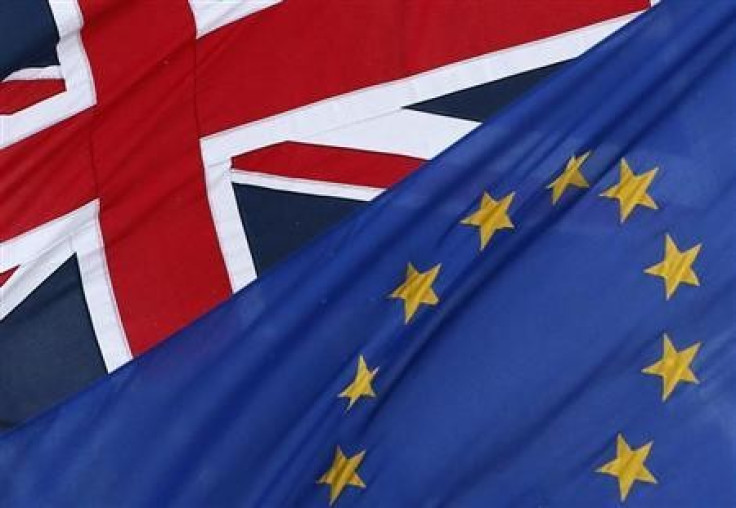Markets, Politics, Economics: Central Bank Extravaganza

Roll up, roll up! Despite the unusual circumstance of the Federal Open Market Committee (FOMC), Monetary Policy Committee (MPC) and European Central Bank's (ECB) meeting in the same week, no new decisions are likely to be announced.
Not, of course, that will prevent some sharp movements before, during and after these August deliberations!
Overall, it is probably best to ignore the hype, enjoy the sunshine and indulge in some dolce fa niente
Waiting for Big Ben-ot
Unlike Godot, Fed Reserve Chairman Bernanke is definitely going to make a dramatic appearance but not until September at the earliest.
His strategy is to get investors used to the idea that tapering is inevitable but not just yet or all at once. He will probably reprise his refrain next Wednesday after the FOMC meeting but, as he plans to skip the Jackson Hole Symposium next month, any further clues will only emerge in the build-up to the subsequent FOMC meeting on Sept 21-22.
By that time the market will have wound itself up (and perhaps down) over two more months of Unemployment and Non -Farm Payroll data and eight sets of weekly jobless claims.
Waiting for the Germans
The Bundestag elections in September seem to be casting ever wider shadows. The politicians in France and Southern Europe must be praying for the SPD and Greens to win a majority.
More enterprisingly, or out of desperation, the Greek government has been engaged in some brinkmanship to wring its latest tranche of bail-out money out of a very tetchy German Finance Minister Wolfgang Schäuble.
However, a new potential Greek funding shortage is arising from the refusal of other Economic Monetary Union (EMU) central banks, in a splendid display of solidarity, to accept new Greek bonds when the old ones mature.
Mario Draghi looks increasingly impotent as not only is banking union looking more remote but cross-border banking within the EMU is breaking down, to the detriment of banks in the Southern countries. At his post-Council press conference on Thursday he may again let forth 'sound and fury' but, alas, it will probably 'signify nothing'.
No relief is in sight as the chances still are that Angela Merkel will stay as Chancellor either continuing the alliance with the FDP or in a Grand Coalition with the SPD.
British Summer Time
The sun is shining on the UK in more ways than one, despite all the grumbling about the 'wrong sort of growth', which is reminiscent of the 'wrong sort of snow' (at least that turned out to be valid in engineering terms).
Growth is growth and this time it is certainly not being fuelled by profligate consumer and government borrowing. In contrast to the US, it is the corporate sector that is leading the way (as evidenced by private sector employment and various business surveys) but manufacturing and exports need much more time to gain momentum after decades of neglect.
Bank of England (BoE) Governor Mark Carney now has a somewhat easier challenge than he must have contemplated when first signing up and will surely give a lead to unanimous votes for no change from the MPC on Thursday.
Quantitative easing (QE) can now be kept for any pump-priming that may become necessary. The main event will be the release of the BoE's latest Quarterly Inflation Report on 7 August when the Forward Guidance targets and guidelines are to be revealed.
It is now almost certain that the MPC will not raise rates before 2016 at the earliest and this is surely one of the main reasons for the growing optimism around the UK.
The new Deputy Governor, Sir Jon Cunliffe, will not join the MPC until November but his appointment is highly significant. A Treasury insider and consummate operator in Brussels, Sir Jon will be able to repair frayed BoE-HMT relations, keep the Eurocrats at bay and tame the banks, which must have mixed feelings. Easy, really!
Apart from another jump in GDP growth in Q2 (0.6% is the UK's long-term trend rate) there have been two further positive developments. First, public borrowing in 2012-13 has been revised lower because of higher tax receipts than previously reported, which bodes well going forward.
Second, the government has become so impatient to get on with infrastructure spending that it is setting up a new Highways Agency with a budget of £28bn.
Of course, there are no grounds for smugness, far less Schadenfreude at the problems in the EMU area.
The best news for the UK would be for the European economy to rediscover growth and the collapse of euro avoided once and for all.
Alastair Winter is the Chief Economist at Daniel Stewart & Co
© Copyright IBTimes 2024. All rights reserved.





